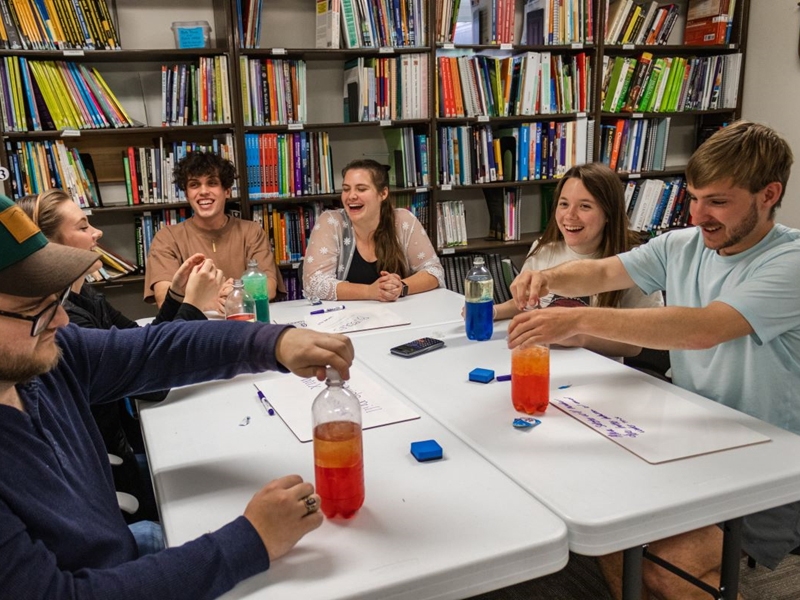Would you like to enhance your STEM degree with valuable communication skills while seeing if teaching is for you? The STEM Education program has three fun and interactive introductory courses for you to choose from.
If you enjoy the introductory course, continue taking courses to earn a STEM Education certificate (9 credit hours) or a STEM Education minor (15 credit hours), which can lead to earning a teaching license (24 credit hours) in biology, chemistry, physics, math or computer science while earning your STEM degree.
STEM 1201 Introduction to Teaching STEM Subjects (Wednesdays 11:05-11:50 a.m., or 3:05-3:55 p.m.)
This course previews what it is like to teach STEM subjects. Engaging activities that model effective teaching practices, discussions of STEM education issues and optional school observations will help STEM majors or others clarify interest in teaching as a career or as an additional skill as a STEM professional.
Note: Fulfills UNIV 1001 requirement for Fulbright majors.
STEM 1212 Inquiry Approach to Teaching STEM Subjects (T/TH 11 a.m.- noon or 2-3 p.m.)
Along with learning classroom strategies for engaging students and organizing a lesson, student pairs plan and teach three inquiry-based lessons (choice of math, science or computer science) in a local school classroom. For STEM majors, but open to all who are interested in exploring teaching as an additional career option.
Note: class will meet twice a week for the first four weeks and for the last week. In between, class will meet only once a week (Tuesdays) to compensate for time spent at schools. Students without transportation will be paired with students who can drive to schools.
STEM 2003 The Art of STEM Communication
An interdisciplinary course that explores the importance of effective STEM communication in socio-scientific issues. Interactive and engaging, this course collaborates with the STEM and Fine Arts departments. Fulfills a social science elective for State Minimum Core.
These courses have no prerequisites and can be taken in any order or during the same semester. They all lead to three pathways for STEM majors to enhance their degrees with coursework that develops communication strategies and understanding of learning in the STEM disciplines. Whether or not you are interested in a teaching career, you will find the strategies that teachers use to convey complex ideas and engage students in critical thinking are valuable to any STEM profession.
"Our advisers are happy to talk with you about your options in STEM Eeducation," said Kim McComas, teaching associate professor. "And if your career plan is to become a teacher of a STEM subject, let us hear from you soon so that we can help you fit the teaching licensure program into your STEM degree."
For more information, email McComas at kmccomas@uark.edu or visit the stem.uark.edu website.
Topics
Contacts
Shannon G. Magsam, director of communications
College of Education and Health Professions
479-575-3138,
